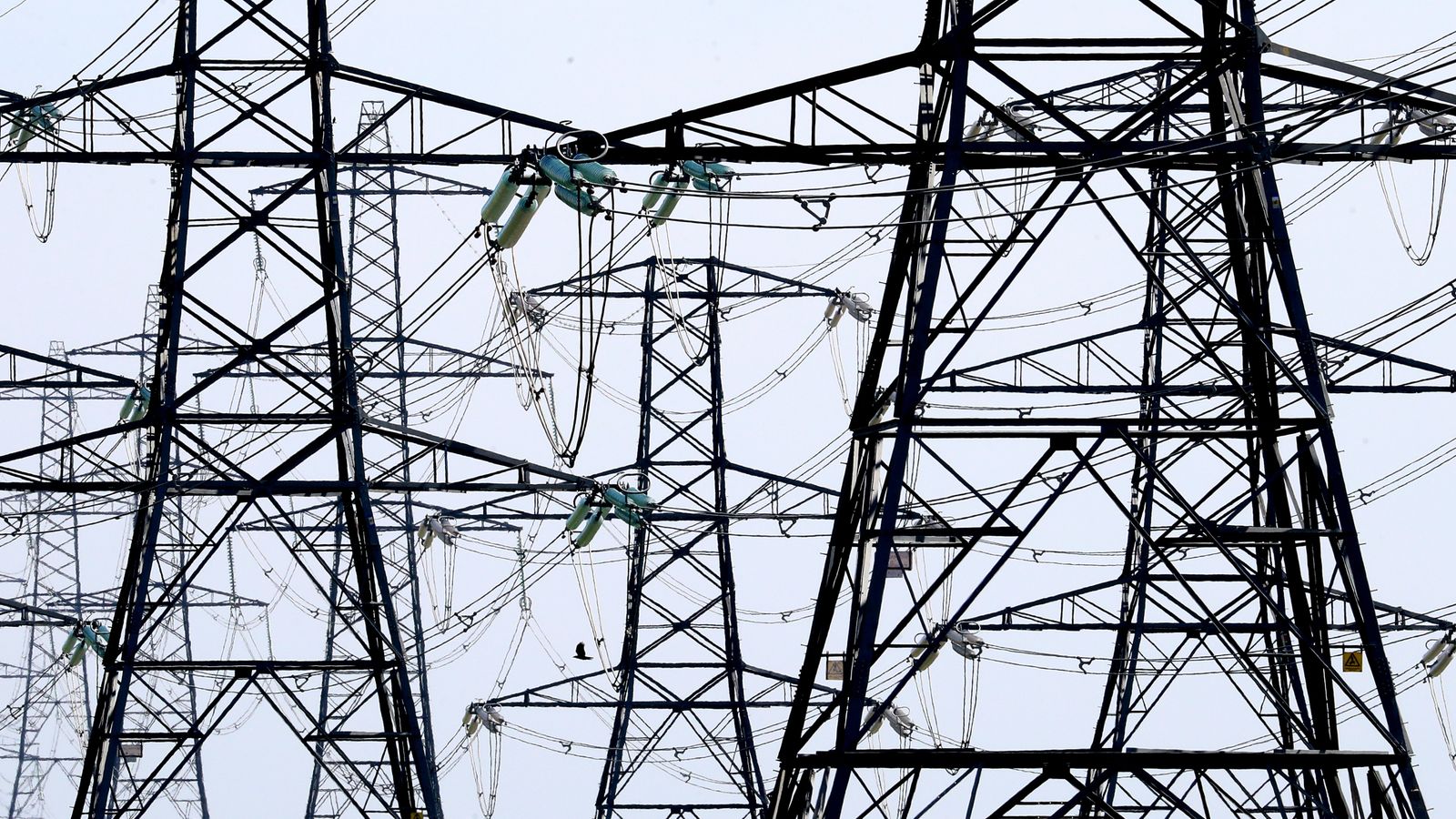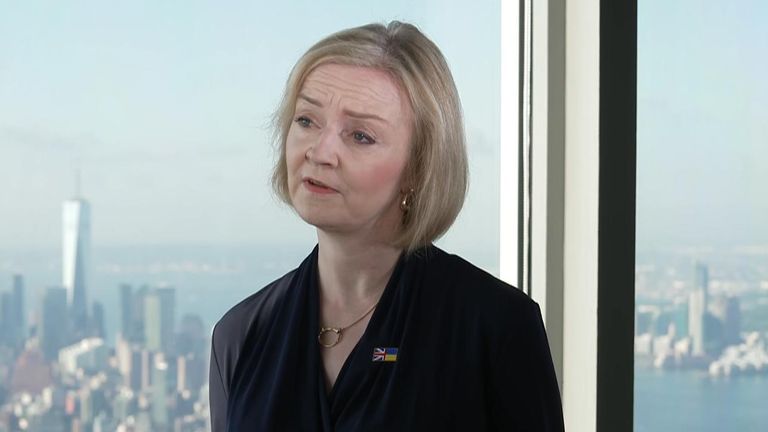Wholesale energy costs for businesses will be slashed by up to half their expected price through the winter months, the government has announced.
They will see government-funded cuts to their energy bills in line with the reductions that have already been announced for homes.
The level of discount will depend on what companies are already paying but respected market expert Cornwall Insight said the scheme represented a 45% discount to closing wholesale energy prices as at the end of last week.
It predicted it would cost the taxpayer £25bn while the business secretary admitted it would run to “tens of billions”.
Millions already behind on household bills – cost of living latest
Like the energy price guarantee for households, which also begins on 1 October, the move effectively puts a maximum price on the unit price cost of electricity and gas charged to businesses.
The energy bill relief scheme will mean those on fixed-term contracts, agreed on or after 1 April, see wholesale prices for electricity capped at £211 per megawatt hour (MWh) and £75 per MWh for gas.
Businesses on other contracts, including those on variable rates, will come under a maximum discount band likely, the government said, to be around £405/MWh for electricity and £115/MWh for gas.
It said that the sums were subject to wholesale market developments and that the government was working with suppliers to ensure all their customers in England, Scotland and Wales were given the opportunity to switch to a fixed contract/tariff for the duration of the scheme.
It will run for six months, with a review after three months to consider whether it should be extended or whether specific sectors require more targeted support.
Ministers said that the package, which also applies to public entities such as schools, hospitals and charities, would ultimately help support economic growth by “preventing unnecessary insolvencies and protecting jobs” while helping keep a lid on inflation at the same time.
No cost was put on the measures.
But business secretary Jacob Rees-Mogg admitted it would lead to tens of billions more in government borrowing in the year ahead.
“The difficulty with giving you a cost figure is that this will depend on where the price of energy goes over the winter. And that’s very difficult to forecast,” he said.
“So I can’t give you an absolute cost. But we are talking about many billions of pounds. Tens of billions, it will be in the tens of billions. Unquestionably.”
PM Liz Truss said of the scheme: “We know that businesses are very concerned about the level of their energy bills, that’s why we are putting in place a scheme for business that will be equivalent to the scheme for households, to make sure that businesses are able to get through the winter, we’re going to review it after six months.
“We’ll make sure that the most vulnerable businesses, like pubs, like shops, continue to be supported, after that.”
Opposition parties had demanded that a harsher windfall tax on energy generators foot the bill – rather than taxpayers.
Read more:
Government warned to reinstate eviction ban to prevent people from losing homes
Truss admits her tax cuts will disproportionately benefit the rich
Liberal Democrat Treasury spokesperson Sarah Olney MP said: “This temporary sticking plaster comes too late for the many small businesses that already closed their doors for the last time because they couldn’t afford soaring bills.”
She added: “Support for high streets and public services should be in place for at least the next year and include measures to improve energy efficiency and cut bills in the long term.”
Business groups widely welcomed the measure but most argued that additional aid would be needed.
Kate Nicholls, chief executive of UKHospitality, said: “This intervention is unprecedented and extremely appreciated as we head into an uncertain winter with numerous challenges on many fronts.”
She added: “Today’s announcement will give businesses some confidence to plan for immediate survival but we will not relent in our pursuit of a more comprehensive package to safeguard businesses and jobs.
“The levers of reduced VAT and business rates reliefs are still available to the government, and there must also be a comprehensive package to ensure that there is no cliff edge when these measures fall away.”

